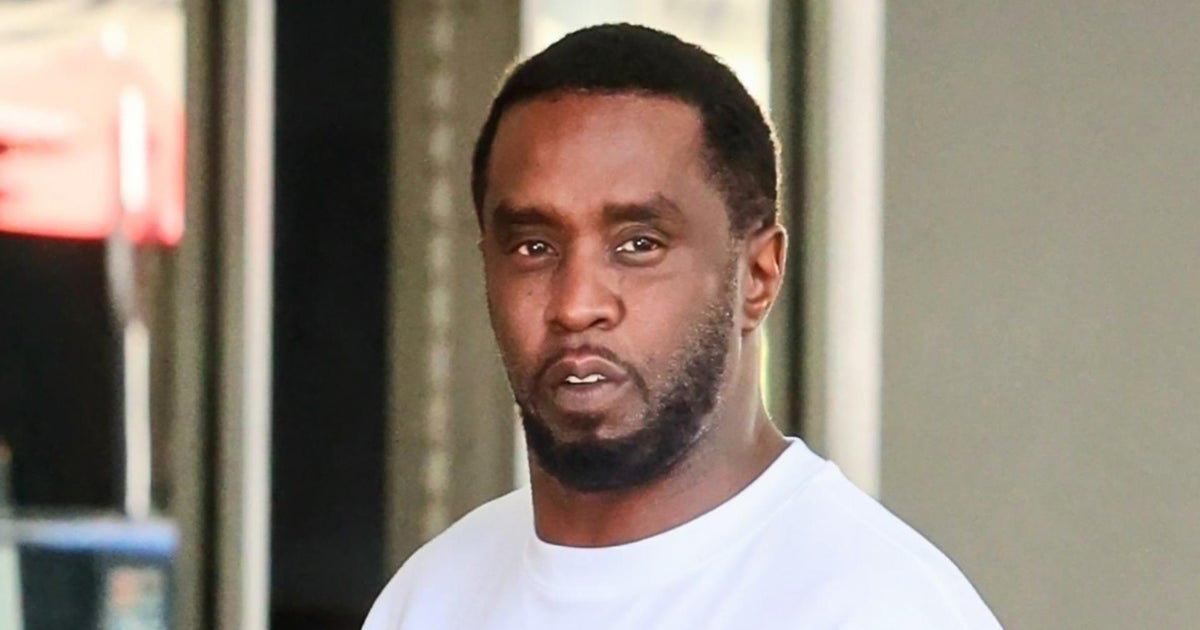Kare11
Lawmakers move to fix police and fire retirement plan


Officers and firefighters with PTSD will be required to try mental health treatment before they can take disability-related early retirement.
ST PAUL, Minn. — The Minnesota Senate Thursday night passed the duty disability reform bill, in an effort to shore up the statewide retirement plan for police and firefighters.
The fund has been hit hard in the past few years, due to a wave of early retirements from post-traumatic stress. The legislation is an attempt to slow the impact of so many officers and firefighters leaving the field due to mental health injuries incurred on the job.
“The situation now is that the pension fund, PERA Police and Fire, is being depleted,” Sen. Nick Frenz of North Mankato, the lead author of a bill, told KARE.
“With an increase in claims some cities are seeing a bigger hit to their budget, partly because health care costs are going up and partly because the number of people on duty disability is increasing.”
Twelve Republicans joined 28 Democrats in voting for the bill. It already passed the House once, but the House will need to concur with an amendment the Senate added. If that happens, it will go to Gov. Walz’s desk to be signed into law.
Civil unrest in the wake of George Floyd’s murder sparked a wave of post-traumatic stress claims, first against he Workers Compensation system, and next to the state’s Public Employees Retirement Association Police and Fire retirement plan.
The bill devotes part of the state’s budget surplus to stabilize that system, but also make a key change for those seeking a duty-related mental injury. Officers and firefighters experiencing PTSD will need to seek treatment first.
They’ll receive 24 months of mental health treatment before they can be placed on duty-related early retirement. They’ll continue in their status as a paid, full-time employee during that treatment period.
“If they’re better after 24 weeks and can return to duty that’s great, if they can find another job with the police or sheriff or firefighters, that’s great,” Sen. Frentz explained.
“What we’re trying to do with the bill first and foremost is to take care of those people that keep us safe, by providing treatment, by protecting the plan status so they can have a fair retirement and we can recruit the next generation of police, fire and paramedics.”
The plan has the support of the statewide police and firefighting groups, because the alternative would be to raise retirement payroll deductions for active duty public safety workers.
Cities and counties also support the bill because of the financial burdens they’ve faced with PTSD-related duty disability claims. Those municipalities are required to pay ongoing health coverage for those public safety employees who go on duty disability.
Jenny Max, the Nisswa City Administrator, told lawmakers earlier in the session that her city will have to raise local property taxes to cover that cost for one officer.
“A longtime officer of the City of Nisswa filed for duty disability benefits and the city was informed those benefits were approved by PERA. The initial financial impact of this one duty disability claim was over $350,000 that would expand over 24 years resulting in an accumulative 14% levy increase.”
In a Pension Commission hearing March 20, PERA director Doug Anderson said current retirees have nothing to worry about, but the system will need to be shored up if the early retirements continue at this pace.
“The amount of disability retirees in recent years has had a really significant impact. Our estimates are that if this doesn’t change it will increase the cost of the plan by $40 million per year. That’s about 4 percent of payroll,” Anderson told lawmakers.
The bill drew opposition from some quarters because it would change what’s known as the reemployment offset for some retirees. It would lower the amount of benefits some firefighters and police get if they’ve taken new jobs that pay more money than their original public safety jobs did.
“We believe it more fairly requires disability recipients that can work to help support the health of the fund from which they benefit,” Anderson explained.
Officers and firefighters who’ve contributed to the retirement fund for 20 years before their work-related injury would not lose any of their disability checks to these offsets. Those who haven’t found other jobs won’t lose any benefits to offsets.
During that joint hearing, Samantha Steward of the Meuser, Yackley and Rowland law firm warned the changes could be devastating to those currently on duty disability early retirement.
Meuser, Yackley and Rowland specializes in representing law enforcement officers and other first responders seeking to file duty disability complaints. It has represented hundreds of Minneapolis Police Department officers who filed Workers Comp claims and later took early retirement through the PERA Police and Fire Plan.
Kare11
Supreme Court’s newest member takes the oath


A ceremony was help honoring the Minnesota Supreme Court’s newest member.
ST PAUL, Minn. — A vast array of judges, lawyers, family and friends gathered at the Minnesota History Center in Saint Paul to honor the newest member of the Minnesota Supreme Court.
Chief Justice Natalie Hudson administered the oath of office to Associate Justice Theodora Gaitas, who was appointed last spring to replace retiring Associate Justice Margaret Chutich.
“A strong judiciary guards against tyranny, against oppression, against injustice. But a strong judiciary also serves the people,” Gaitas told the crowd.
Gaitas, who spent her childhood in Greece, quoted Greek philosopher Aristotle several times in her speech.
“Aristotle wrote law is order and good law is good order,” she said. “Here in Minnesota, we have good order. Good order relies on a strong judiciary.”
Gaitas has spent the past four years as a jurist on the Minnesota Court of Appeals and before that spent two years as a Ramsey County District Court Judge. She took the legal oath previously before joining the Supreme Court in August, so Monday’s event was purely ceremonial.
Gov. Walz appointed Gaitas and Judge Sarah Hennesy last April to fill two vacancies that were expected on the high court in the months ahead. Justice Hennesy joined the Supreme Court on May 13, replacing the retiring Associate Justice G. Barry Anderson.
Walz took a break from the vice-presidential campaign trail Monday afternoon to attend the ceremony and thank Gaitas for accepting the new role.
“One of the questions we asked is what life experiences shaped who you are,” Walz said. “Justice Gaitas’ personal journey, her personal heartaches, as well as her commitment to others shined through in so many ways. Putting others in front of herself, and her work as a public defender doing it with every ounce of her intellect, but with the compassion that needed to be there too, shined through.”
The heartache he referenced was the sudden death in 2023 of Justice Gaitas’s husband R. Christopher Sur. He died while cross-country skiing in Theodore Wirth Park in Minneapolis with a friend. Their daughter Clea performed with a musical combo at the ceremony and held a copy of the US and Minnesota Constitutions as Gaitas took the oath.
Lt. Gov. Flanagan praised Gaitas for her breadth of experience and connection to those who use the court system.
“Justice Gaitas has excelled at every level of the legal profession and the judiciary. Her extensive experience as an appellate public defender and judge in the district court and court of appeals instilled a deep understanding of how our justice system can and should treat real people.”
Kare11
Former secret service agent reacts to latest Trump apparent assassination attempt


Mike Olson served in the Secret Service for over two decades and has some thoughts on what went wrong and what could be done better by the Secret Service.
WEST PALM BEACH, Fla. — It’s no secret that the agency tasked with protecting former president Donald Trump are constantly on the lookout for threats, especially following the assassination attempt in July.
The heightened level of concern has former Secret Service agent Mike Olson questioning the actions of Secret Service agents on Sunday. Olson was in the Secret Service for over two decades, and now runs his own security firm, 360 Security Services.
“I have been a part of those golf outings in my career and typically there is much more security on those outer roads outside of the fence line,” Olson said.
Ryan Wesley Routh, 58, faces charges of possessing a firearm despite a prior felony conviction and possessing a firearm with an obliterated serial number. He did not fire any shots and never had Trump in his line of sight, the Secret Service’s acting chief said.
Routh appeared briefly in federal court in West Palm Beach, kickstarting a criminal case in the final weeks of a presidential race already touched by violence and upheaval. Though no one was injured, the episode marked the second attempt on Trump’s life in as many months, raising fresh questions about the security afforded to him during a time of amped-up political rhetoric. It prompted Republican allies and even some Democrats to demand to know how a would-be shooter could get so close.
The Secret Service’s acting chief said the golf outing was ‘off the record’ and not released a part of the former president’s public schedule.
“True off the record is going without all the cars and trying to go undercover so to speak,” Olson said.
Routh was arrested Sunday afternoon after authorities spotted a firearm poking out of shrubbery on the West Palm Beach golf course where Trump was playing. He was spotted by a Secret Service agent assigned to Trump’s security detail who opened fire. Routh sped away before being captured by law enforcement in a neighboring county, the authorities said.
Olson said in his experience, there were few levels of protection in off the record outings, usually meaning there wasn’t a massive outside perimeter around the location. This is the part he has questions about, considering the predictability of where the former President likes to golf in West Palm Beach and the day of the week he usually golfs. With heightened level of threat following the first assassination attempt at a rally in July, Olson thinks even ‘off the record’ outings need to be treated as a normal event.
“I am saying across the board, we need to really step things up between now and the election,” Olson said.
Kare11
U.S. Surgeon General issues health warning on parental stress


The U.S. surgeon general calls parental stress an urgent public health issue that requires the nation’s immediate awareness and action.
MINNEAPOLIS, Minnesota — We all know parenting can be stressful but the U.S. surgeon general said it goes beyond that.
U.S. Surgeon General Dr. Vivek Murthy has issued an advisory on parental stress, calling attention to an “urgent public health issue.” Murthy said. “advisories are reserved for significant public health challenges that require the nation’s immediate awareness and action.”
Dr. Murthy said there are many factors affecting parents today. Beyond the traditional challenges, he mentions “there are new stressors that previous generations didn’t have to consider. These include the complexity of managing social media, parents’ concerns about the youth mental health crisis, and an epidemic of loneliness that disproportionately affects young people and parents, just to name a few.”
Meghan Tompkins of Golden Valley is a mom to three — ages 5, 3 and 11 months.
“My husband and I were just talking about it the other day, actually… deciding if we want to have another kid or not. We’re almost at this point, even with a 5-year-old and a 3-year-old and just their kind of basic activities… there’s kind of an expectation to put your kids in all these things and try everything and you want them to. But then we also feel like we’re kind of capped out almost,” Tompkins said.
According to the surgeon general’s advisory, 41% of parents say most days they are so stressed they cannot function.
“I try to talk to my mom about it and tell her that it’s different, that it is more stressful and the stresses are different, and she doesn’t really understand it,” said Emma Skala of Minneapolis.
Skala’s kids are ages 7 and 4. Skala homeschools her boys, citing school shootings as one of the main reasons behind her decision.
According to the report, school shootings or the possibility of one are a significant source of stress for nearly 75% of parents.
“I can’t fathom putting a small child through an active shooter drill. I just, it breaks my heart every time I hear about it. I cry every time I hear about any kind of school shooting that happens. That’s I think one of the main things is the safety of our children,” Skala.
The advisory also mentions nearly 70% of parents say parenting is now more difficult than it was 20 years ago, with children’s use of technology and social media as the top two cited reasons.
“I let my 3.5-year-old scroll YouTube and I’m nervous about that. Should I really be letting him do that? How much control do I have on that? And you know that we need to limit screen time, and yet that’s an easy go-to when I’m trying to make dinner… I’m trying to do my part-time job from home,” said Kristi Thao, who also has a 3-month-old baby.
Thao also mentioned how social media and access to so much advice can put more pressure on parents.
“Then we try all these different things but it’s like, then there’s so many options. I think having too many options can also make things more stressful. There’s too many choices,” Thao said.
The advisory acknowledges an “intensifying culture of comparison—often propagated by influencers and online trends—with unrealistic expectations around the milestones, parenting strategies, achievements and status symbols that kids and parents must pursue. Chasing these unreasonable expectations has left many families feeling exhausted, burned out, and perpetually behind.”
Lena K. Gardner became a mom three months before the pandemic.
“In my personal journey, I am a single mom by choice,” Gardner said. “And I thought I could do that because I have a big support network but COVID took that all away.”
The advisory states, “This high level of stress among parents preceded the COVID-19 pandemic, and the pandemic notably contributed to additional stressors on parents and caregivers.”
During the pandemic, Gardner isolated with her daughter. At the same time, her daughter would only sleep for 1.5 hours at a time before waking up.
“I became so sleep-deprived, I started having hallucinations. I called my therapist and I was like, ‘That’s it. Motherhood has broken me.’ And she said, ‘No it hasn’t. This is the first sign of extreme sleep deprivation.’ And she’s like, ‘You need help,'” Gardner recalled.
Once her daughter was in daycare, Gardner said she had to navigate daycare closures or exclusions during the pandemic.
“It still happens. Your kid gets COVID. They’re excluded for how many days and you’re left to bear the brunt of it,” said Gardner, whose parents have both passed away.
The report said social isolation and lack of social support can lead to heightened stress. On top of that, parents, on average, are working more than before.
“Most people are required to be at their jobs from something like 9 a.m. to 5 p.m. But schooling is from like 7 a.m. to 3 p.m., and it just doesn’t make logistical sense,” Gardner said.
She went on to say, “There are a lot of solutions and it baffles me why we’re not doing them more.”
Dr. Murthy mentioned the need for a cultural shift that recognizes the importance of raising children.
At the same time, he also pointed to the need for policy changes. Among his recommendations include promoting and expanding funding for programs such as Head Start and the Healthy Start program, establishing a national paid family and medical leave program, and ensuring parents and caregivers have access to affordable and high-quality mental health care.
The full advisory can be found, here.




GIPHY App Key not set. Please check settings